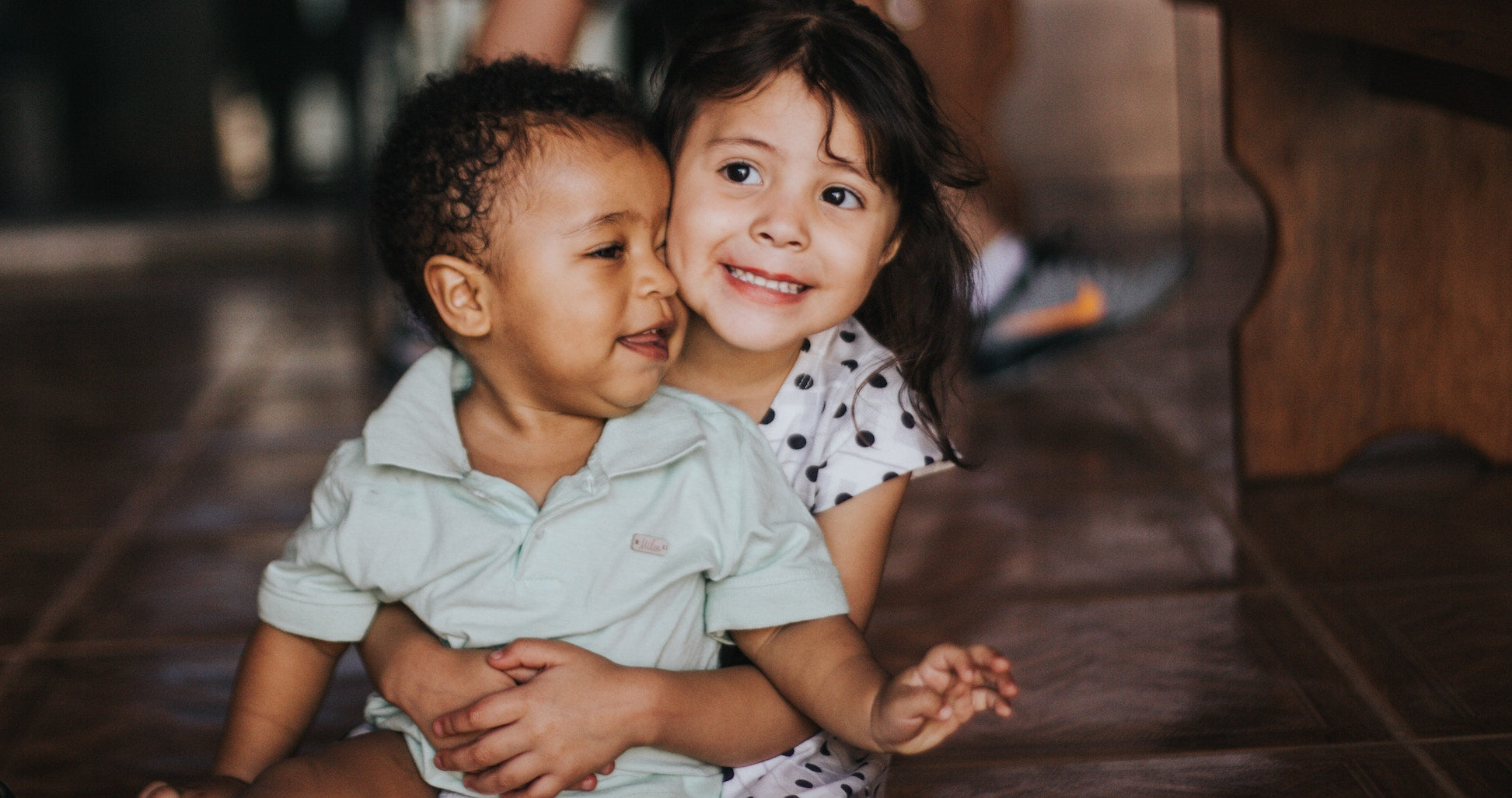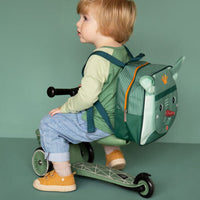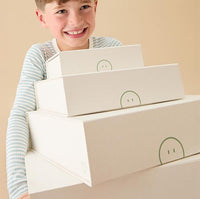Should I put my second baby in the same room as my first?

If you’re awaiting the arrival of baby number two, then sleepless nights, sporadic feeds, and toys strewn about the house are old friends by now. Consider yourself a baby pro, and more than ready to give it all a second shot.
But this time around, it’s not only you who will be there to greet the family’s newest member. Your older child will no longer be your sole focus, and this reality can bring with it a fair few obstacles. Having two babies will impact bedtime in particular. And a common question in this area is whether you should put your second baby in the same room as your first. There is no ‘right or wrong’ answer.
In another of our lifestyle articles, we’ve talked about having your partner sleep in another room after the arrival of your first baby. And as mentioned there, these kinds of decisions come down to you, your partner, and your own personal circumstances. This is no different in the context of a second child.
Below are some tips for sibling-sharing, as well as a few noteworthy drawbacks that should be kept in mind. These may help you to prepare and establish a stable sleeping arrangement that will keep everyone happy (and hopefully well-rested!)

Tips for sibling-sharing
Respect your older child’s sleep schedule – if you decide to give sibling-sharing a try, then be conscious that it will throw your older child’s routine off-balance. There’s no avoiding it with the addition of a new baby, but there are ways to ease everybody into the transition.
Your children may share a room, but they will not share a sleep schedule, particularly if your older child is a toddler/pre-schooler. If your new baby tuckers out for the night by 5PM, then there will still probably be several hours to go until your older child’s bedtime.
Put your youngest baby to bed first - This will then leave some great quality time for you and your toddler. As long as you can work around it, it’s perfectly fine for your children to have separate bedtime routines, even if they’ll be sleeping in the same room.
Create personal space – ‘sharing is caring’ is a good sentiment to encourage early on in children’s lives. But privacy and alone-time are also important, and especially so when it comes to kids who have spent the first year or so of their lives as only children. New babies can be a handful, after all.
Consider splitting the room into two halves; half for one child, and half for the other. This means that when socialising gets a little too much for either one, there is a safe space for them to retreat to and recharge.
Have consistent rules for bedtime – forming a reliable new routine after baby number two arrives is important. Establishing some boundaries around bedtime will help everyone to get a better night’s rest.
If your new baby is sound asleep, for example, then your older child must know to keep the noise to a minimum if they are sharing a bedroom. And if your new baby is having a particularly restless night, then perhaps move them into the living room, kitchen, or your own bedroom, to make sure your toddler is getting the rest they need as well.
It will get easier in time – humans are adaptable, and we fall into routine easily even when we’re young. It’s all about balancing your children’s needs, working through any mishaps, and finding what works best.
And it’s important to remember that sharing a room can be fantastic fun for younger children, so long as everyone has a fair and consistent schedule.

Some potential disadvantages of sibling-sharing
Different sleep schedules can (and will) cause issues – there is no denying it. Both of your children will have wildly different opinions of when exactly bedtime is, and trying to ease them into a routine can potentially be stressful and frustrating.
It may be that case that, even with careful boundaries set in place, sibling-sharing just isn’t the right situation for your kids, particularly if one is a very young baby. And instead of trying to endure the stress that sharing a bedroom might cause, it can simply be best to move your children into separate rooms.
At the end of the day, you want to settle with what works. And your children will still only be a room away from one another.
Your children will distract one another – we are social beings. Everyone likes a good natter now and again. And where children are concerned, this can stretch into the early hours of the morning. Even if you’ve set some firm bedtime rules in place, rules are made to be broken.
Siblings will be naturally curious about their tiny brother or sister, and the fact that the new baby needs their sleep will not hinder this desire to play, care for, and talk with them at any opportunity. While their heart is undoubtedly in the right place, this can upset your new baby’s sleep tremendously.
And new babies will sleep sporadically, cry loudly, and ultimately disturb your older child as well; particularly if they are sleeping only a few paces away.
Having separate bedrooms will mitigate disturbances like this. But every living situation is different, and only the tried-and-tested method will really tell what the right choice for your children is.
Consider all your options, weigh the possible pros and cons, and discuss them with your partner. There are a lot of benefits to be gained from sibling-sharing – social skills, empathy, compassion, patience, and so on. But there are also downsides – perhaps your children simply take badly to sleeping in such close proximity, or it could be that you don’t have the means or the space to sleep them separately.
You can look here for further information on being a second-time parent, or browse the lifestyle page for more MORI stories, insight and advice.














